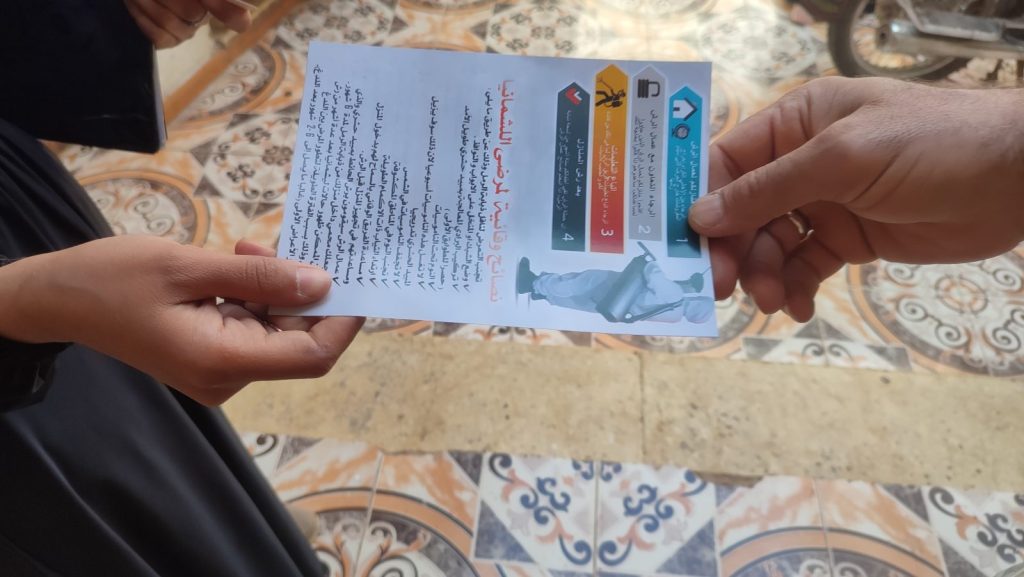Northern Syria continues to face one of the most severe humanitarian crises globally after more than a decade of conflict. This has led to a significant loss of life, widespread displacement and a strained health infrastructure.
Despite these challenges, millions of internally displaced persons (IDPs) have settled in the region, putting pressure on an already weakened health system.
The health system in north-west Syria is fragmented and under-resourced, unable to meet the increasing health needs of the population. Combined with the challenging living conditions of IDPs exposed to unimproved dump sites and poor sanitation, this situation increases the risk of communicable diseases such as leishmaniasis, a Neglected Tropical Disease affecting 12 million* people globally.
Cutaneous leishmaniasis is the most common form of the disease, which is transmitted through the bite of sandflies carrying the parasite. Visceral leishmaniasis is a more fatal form of the disease, often affecting internal organs such as the liver and spleen. Both forms of the disease can be treated.
MENTOR has been working to control and treat leishmaniasis in the region for around 10 years. Working closely with partners and donors our specialist support includes mobile clinics, indoor residual spraying, health facility support, hygiene promotion and social behaviour change projects. This integrative and collaborative approach has enabled MENTOR to reach over 34 million people since we started in the country.
In 2023 these activities helped to prevent and treat leishmaniasis for more than 2.6 million people. 400,000 medical consultations were carried out for visceral and cutaneous leishmaniasis through 163 static and mobile health clinics.
Indoor Residual Spraying in 491 towns and villages as well as 91 internally displaced resettlement camps helped protect more than 2.2 million people.
Mohamad Agha, The MENTOR Initiative Regional Operations Manager, said: “The situation in northern Syria is critical and only getting worse as the number of people needing support increases. This has been exacerbated by the earthquakes almost one year ago that caused more destruction, displacement and disruption to services.
“There is a significant threat to the overburdened health system as funding from major donors is reduced, which compromises the progress that has already been made to control the spread of diseases and mitigate the risk of outbreaks.”
*Pan American Health Organization: https://www.paho.org/en/topics/leishmaniasis

